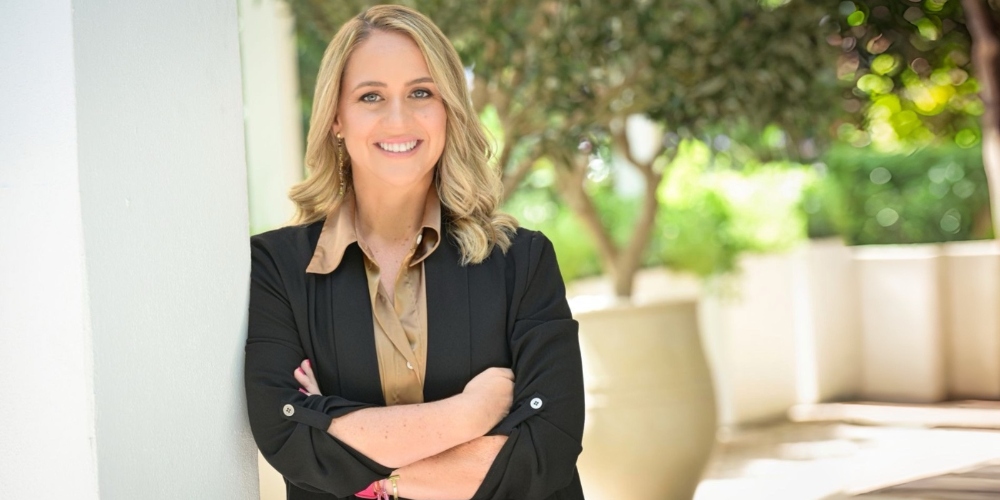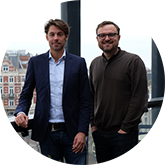Innovation doesn’t happen in a vacuum — it takes vision, collaboration, and systems that empower people to take bold ideas and turn them into impact. Few understand this better than Ale Winter, a seasoned ecosystem builder whose work has helped shape the startup landscapes of Latin America and the United States. From co-founding one of Chile’s first innovation hubs to helping Miami emerge as a global innovation node, Ale has spent her career building the environments where entrepreneurs — and their ideas — can thrive.
As Director at the Cambridge Innovation Center (CIC), Ale now leads efforts to help cities around the world design and activate ecosystems that drive innovation at scale. In this interview, she shares her journey, the principles that guide her work, and what it takes for cities and startups alike to compete — and collaborate — on a global stage.

- Hi Alejandra. Thank you for agreeing to do the interview. Could you please tell us about your background and your connection to the startup world?
I’ve always believed that entrepreneurs aren’t superheroes — they’re rockstars. And like any great artist, they need a team behind them: someone to set the stage, manage the chaos, and amplify their talent. That idea has guided my entire career — building the structures, partnerships, and environments where innovation can truly shine.
Over the past decade, I’ve helped shape innovation ecosystems across Latin America and the U.S. I co-founded one of Chile’s first innovation hubs, collaborated with founders, investors, and international partners, and designed programs to attract and expose talent so ecosystems can grow more competitive on the global stage. Most recently, I’ve been proud to be part of Miami’s transformation into a globally connected innovation hub — bridging local energy with international reach, and helping position the city as a serious player in the global innovation landscape.
Today, as part of CIC’s Innovation Ecosystem Advisory Services, I help cities reimagine how they compete in the global economy. We work with governments and corporations to design innovation districts, activate hubs, and connect local talent to international opportunity. What hasn’t changed is my core belief: innovation is a team sport, and cities thrive when we build systems that support not just entrepreneurs, but the ecosystem around them.
- You’re the Director of CIC (Cambridge Innovation Center), the global leader in driving innovation at scale. CIC manages more than 1.5M square feet of workspace, laboratories, and event space across North America, Europe, and Asia. Tell us about your mission.
Our mission is to fix the world through innovation. That might sound bold, but it’s grounded in a simple truth: the biggest problems we face today — climate, health, inequality — won’t be solved by one company or country alone. They’ll be solved in cities that create the right environments for collaboration, experimentation, and scale.
At CIC, we help cities become global nodes in the innovation network. We design districts that cluster the right people and infrastructure, we activate those spaces with purposeful programming, and we open doors for local talent to plug into global markets. In the last five years, our programs have helped startups grow internationally, and more importantly, we’ve helped governments rethink how they compete, not through incentives, but through ecosystems.
- What is it about innovation and entrepreneurship that particularly attracts you?
For me, innovation is hope in action. It’s how we solve what feels unsolvable — from climate change to inequality to health crises. And entrepreneurship is one of the few forces that can turn bold ideas into real, scalable impact.
What excites me most is seeing how innovation can transform not just products, but entire communities. When we build the right systems — districts, hubs, and international bridges — we give people the tools to shape their own future. That’s why I do this work. Because when ecosystems thrive, talent stays, ideas grow, and cities rise. And that kind of progress is contagious.
- You work at the intersection of cities, startups, and global innovation ecosystems. What do you see as the key ingredients for a city to become a truly global innovation hub?
It starts with vision, but it has to move quickly into execution. The cities that thrive aren’t just building beautiful buildings or hosting one-off tech events — they’re designing systems that connect talent, capital, research, and global markets. They align government, academia, and the private sector around a bold, long-term strategy. Their anchor institutions open up to collaborate. They invest in physical spaces that invite interaction and experimentation, and they activate those spaces through programs and platforms — like accelerators, ecosystem programming, or global connection points — that make it easy for ideas, research, and people to move. Most importantly, they cultivate a mindset of openness to the world, because no ecosystem thrives in isolation.
- What advice for startups would you share with founders reading this interview?
Start by building a community. Before programs, before real estate, before investment, you need trust, shared purpose, and real connection between people. Innovation doesn’t happen in silos, and it doesn’t thrive in competition for visibility. It thrives when people feel seen, supported, and inspired to collaborate.
Community-building isn’t a side effect of good programming—it’s a discipline in itself. There are strategies, systems, and structures that can make it intentional and scalable. I’ve seen cities spend millions trying to “spark innovation,” but it’s often the community-building work — gatherings, introductions, and small wins that lay the groundwork for real impact.
My advice is: invest in the connectors, the bridge-builders, the spaces where ideas collide. And remember that every global success story started somewhere local, with someone who felt empowered to try.
If you can build a community that believes in itself, you’ve already built the most valuable asset in any innovation ecosystem.
Thanks a bunch for sharing your story and insights with us. We wish you the best of luck in your future endeavors!
Join our network of startups & investors!


